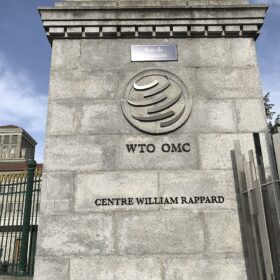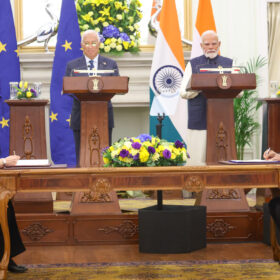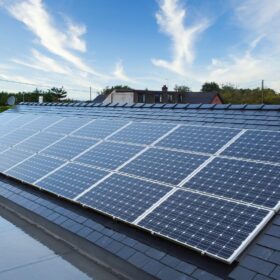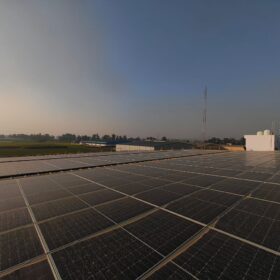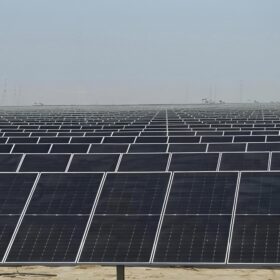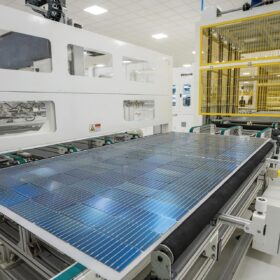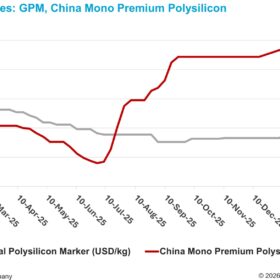Renewables’ share to reach 26% of total power generation by FY2026-end: Infomerics Ratings
Infomerics Ratings expects renewable energy (RE) to account for 26% of India’s total power generation by the end of FY2026, despite softer demand conditions.
India’s FY2027 budget shifts focus from renewable deployment to manufacturing, but execution challenges persist, says Wood Mackenzie
Clean energy spending rises 40% to $5 billion as government prioritises CCUS, domestic supply chains and strategic manufacturing. However, execution delays and underutilisation of allocated funds could limit the near-term impact, according to an analysis by Wood Mackenzie.
India’s blueprint for sustainable solar success
By embedding quality benchmarks into procurement and manufacturing incentives, policymakers are ensuring that India’s energy transition is durable, not disposable. The focus has moved from rapid installation to long-term reliability — a sign of sectoral maturity.
US government withdraws defense of solar tariff pause
The US Department of Justice (DoJ) has withdrawn from defending the executive order that paused certain tariffs on imported solar components, leaving private industry groups and companies to continue the appeal. The withdrawal increases legal uncertainty over potential retroactive duties tied to imports from Cambodia, Malaysia, Thailand, and Vietnam.
U.S.-India trade deal reduces solar tariffs
Tariff reductions under the new U.S.-India trade agreement lower import costs for solar modules and energy storage components. Reciprocal tariffs were effectively reduced from 50% to 18%.
WTO finds US clean energy tax credits violate trade rules
The WTO ruled that U.S. clean energy tax credits under the Inflation Reduction Act violate international trade rules by giving domestic products preferential treatment over Chinese goods. The decision specifically targets the ITC and PTC Domestic Content Bonus Credits.
Renewable energy industry’s key expectations from Union Budget 2026
The upcoming budget must prioritize in-house technology and equipment development, provide clarity on delayed power purchase agreements (PPAs) and power sale agreements (PSAs), increase budgetary allocation and policy support for Green Energy Corridors, introduce production-linked incentives for battery energy storage system (BESS) manufacturing, establish an Approved List of BESS Integrators (ALBI), lower the cost of capital through priority sector lending, extend ALMM for solar cells, and continue the ISTS waiver, among other measures.
India–EU FTA anchors climate and trade in a fracturing global order
The India–EU free trade agreement is emerging as a platform for climate-trade convergence. The climate dimension is not incidental—it’s already embedded in ongoing India–EU frameworks.
Pre-Budget 2026: Solar and storage industry calls for tax reforms, PLI expansion, and circular economy push
Ahead of the presentation of the Union Budget 2026–27, stakeholders across India’s solar and energy storage ecosystem have urged the government to focus on tax reforms, expansion of production-linked incentive (PLI) schemes with targeted allocations, faster viability gap funding (VGF) disbursements, additional funding for residential rooftop solar, improved access to long-term and affordable green finance, and a stronger push for circular economy initiatives and grid modernisation.
UK to spend $20 billion on home energy upgrades, mandatory PV for new homes
Cash grants and state-backed loans to support solar and battery storage installations in millions of UK homes as part of government Warm Homes Plan. UK government says investment has the potential to triple the number of homes with rooftop solar by 2030.




